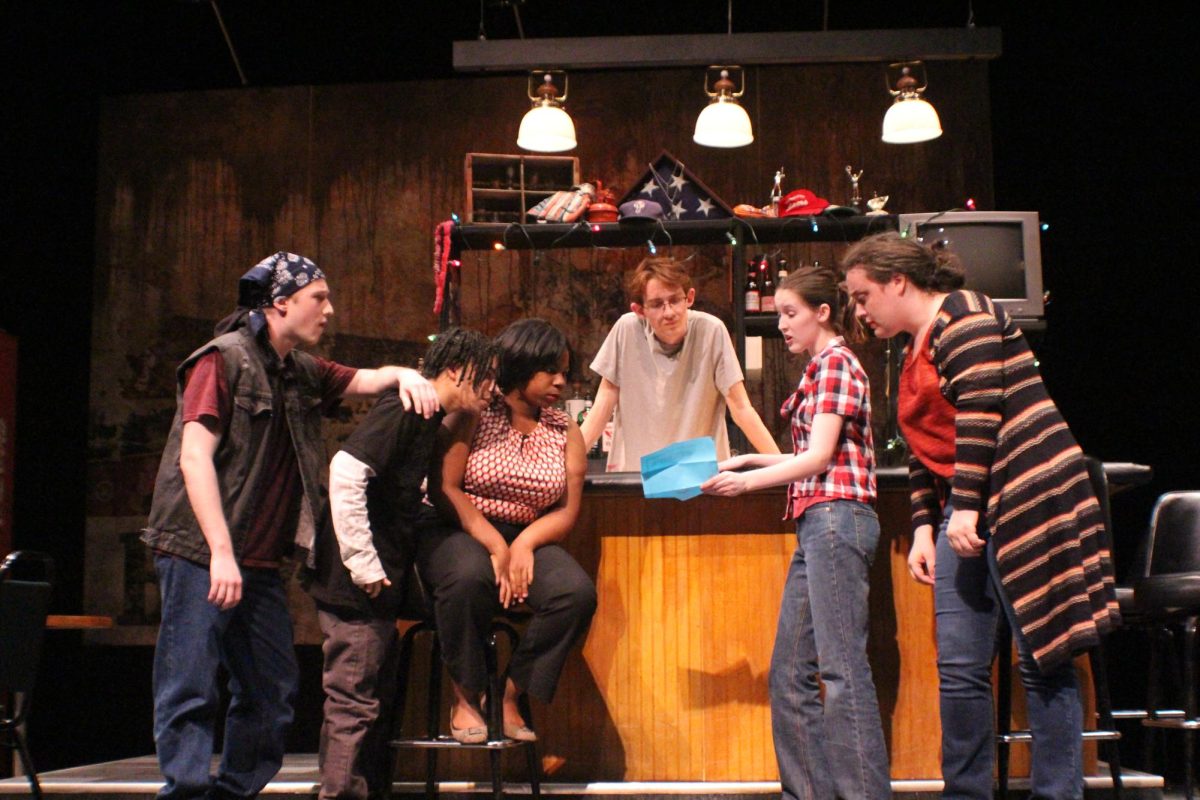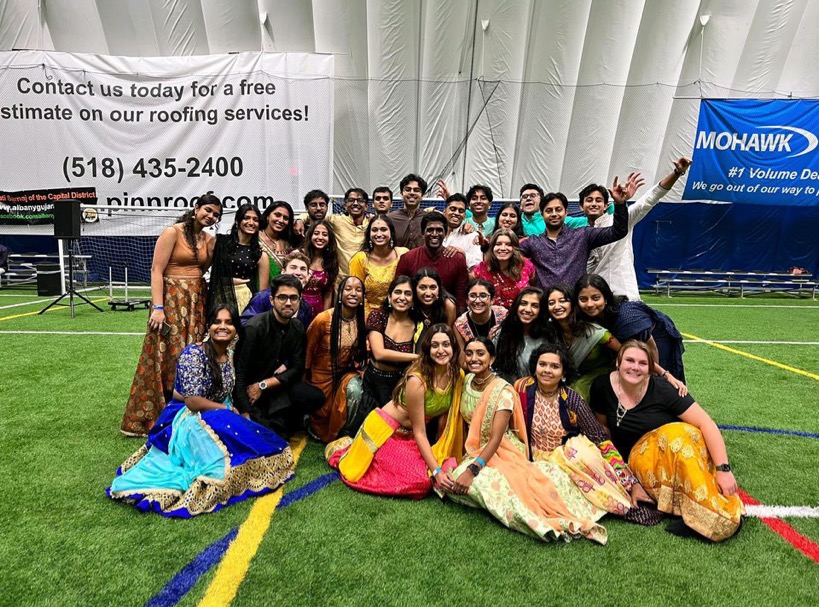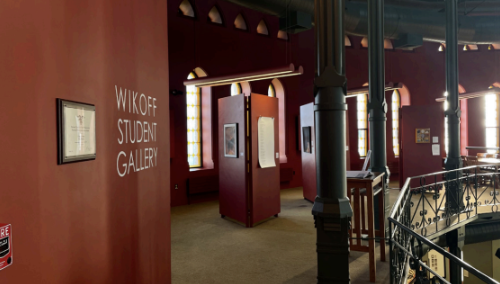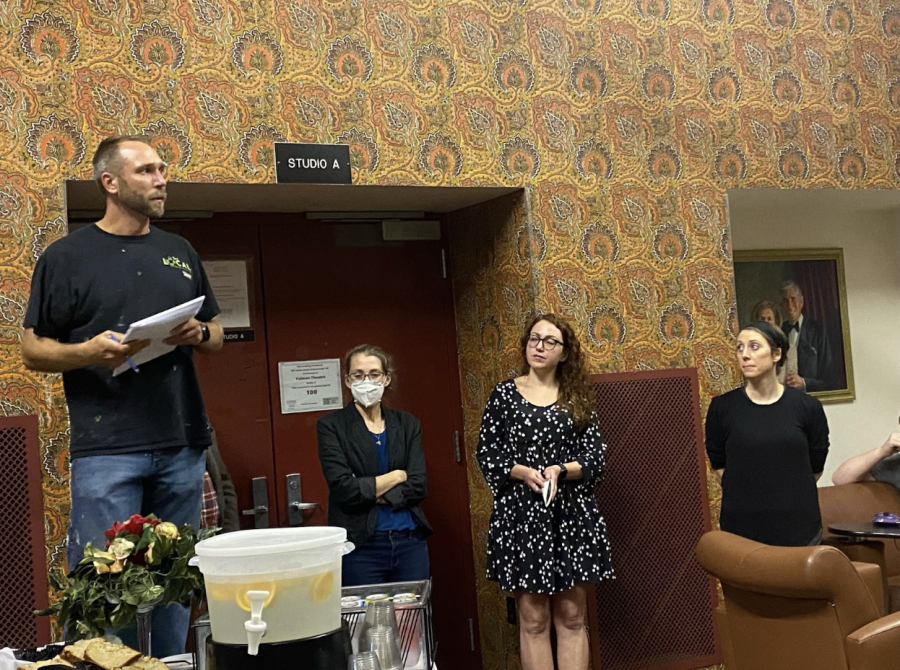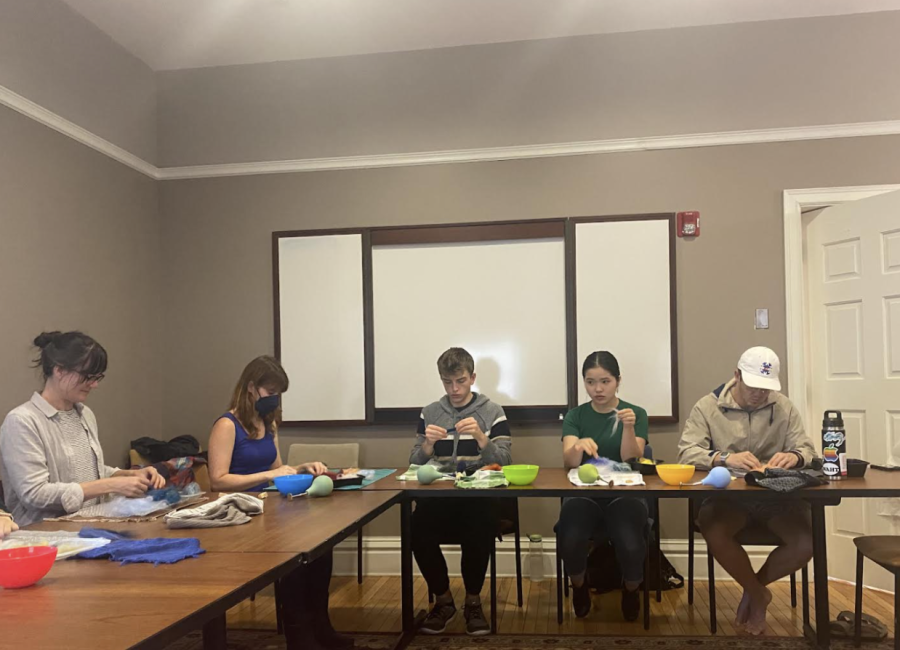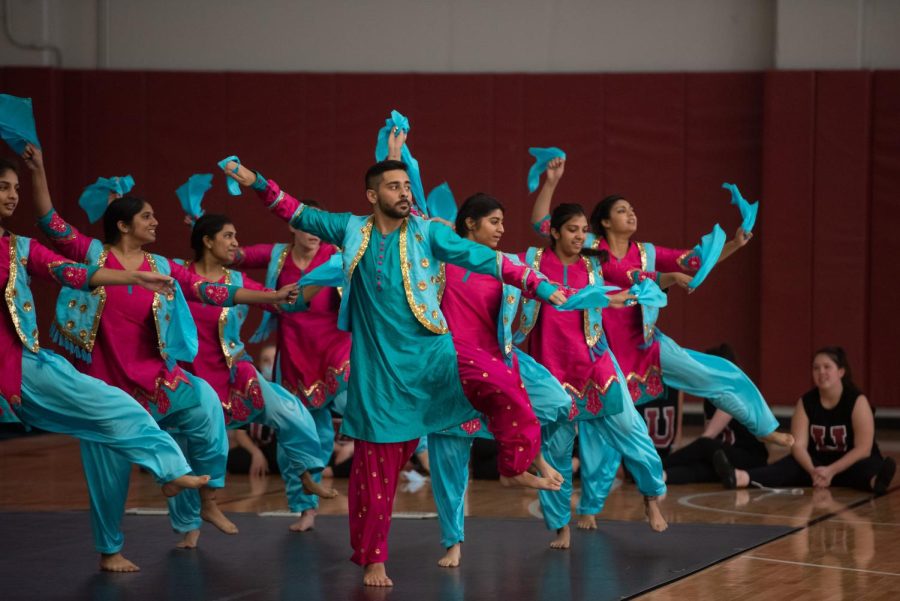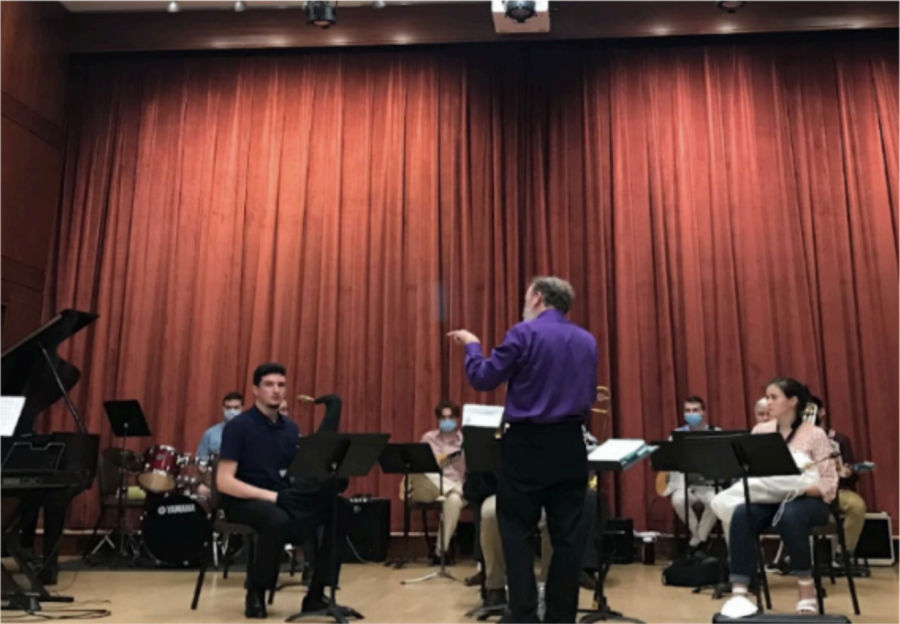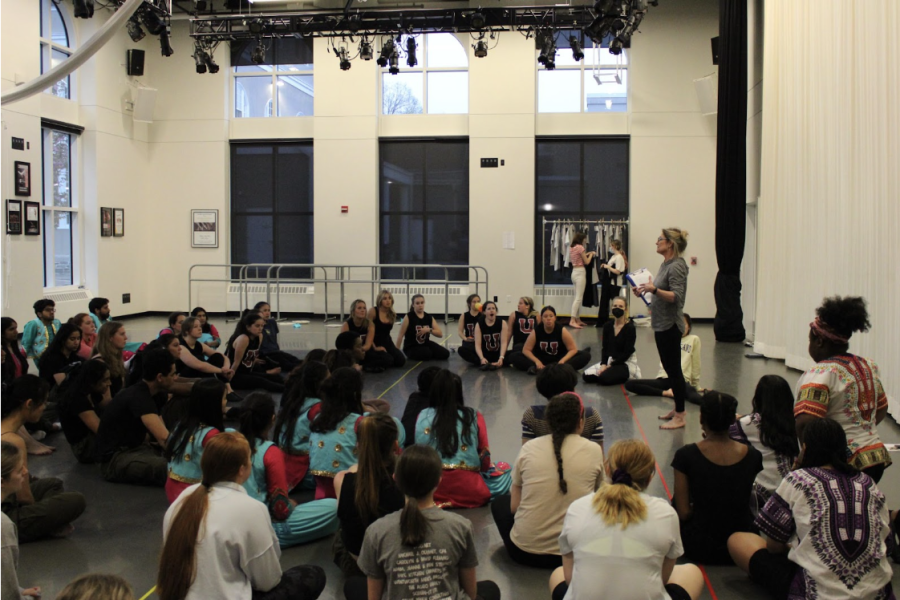The Caribbean music of Union’s annual Carnival fills the air as Brendan Coleman ’18 (BC) sits perched on the stone wall separating West Beach and the last women’s rugby game of the season. Live drummers serenade the campus.
Lindsey (RL): “So, tell me about your senior thesis.”
BC: “My senior thesis is a collection of paintings. My project is about water and how water has affected different cultures. I’m focusing on Flint, Michigan, the Middle Passage and the crossing of territory borders.
I’m going to be painting scenes that highlight how water is a source of sustenance, but there is often not enough of it. Sometimes, water is not in reach and sometimes it’s not clean. A lot of times, water can be used as a form of separation, as a barrier to get across. This is true in terms of borders, in terms of neighborhoods and in terms of segregation during the civil rights movement.
The project was inspired by spoken word I was exploring at the beginning of the year. The work of one lady in particular impacted me in that I never really thought about water in terms of my own culture and in terms of where I came from.”
RL: “And where are you from?”
BC: “I’m American, but in terms of American, I am a Black American.” She unpacked how much of an impact water had upon black culture.
BC: “There was a huge component of fear involved with water historically. Water fountains were segregated, beaches were separated. When it wasn’t used for separation, water was used as a
tool of superiority, I guess, during the civil rights movement when they would hose people down in order to keep them at bay.”
RL: “How do you feel about the duality water holds in being sustenance, physically making up so much of us, but also having been used as a weapon?”
BC: “Exactly, so that’s what I’m focusing on. Every single human on this Earth has an association and a relationship with water and it’s not always positive.
There are some people who go on yachts and they have a pool in their backyard and they have endless amounts of water. They have fresh water that they can go out in their backyard and get from a well. But, there are also people in Flint, Michigan who don’t have clean water at all. The EPA isn’t doing anything about it or they aren’t doing anything quick enough. It’s just sad because it is an area of low income in which people don’t have as much money, and for them to not have clean water and to not be able to get clean water for themselves, is devastating.
We live in America, where there is not a shortage of water. So what is the problem?”
RL: “It’s more about the inequality.”
BC: “Exactly. For example, after Hurricane Katrina, all of the damage that was done has been fixed in areas that have wealth in order to contribute, but the lower ninth ward is still messed up. Water is everywhere. People don’t really notice it. People take it for granted just because there’s not really a lack of it, but it does affect a lot of people in a lot of different ways. It makes sense, because it is everywhere. We don’t think about it in that way. We’re made up of water, almost this whole world is made up of water, there’s water coming out of the sky right now.”
RL: “It’s interesting that in so many parts of our society, and definitely at Union, water is just something you can pick up so easily – whenever you want, wherever you want. Yet,
it’s so crucial and valuable in areas of the world and areas of our country that lack access to water.”
BC: “Yes. Here, so many of us in clubs and organizations will give out a water bottle as a freebie. If we were to give that to someone who truly needed it, we could make a difference.
It’s sad because they can’t even do anything with that water bottle! There’s often issues with water clarity as well.”
RL: “What do you see for the future of this issue? What do you think we can do to make a change?”
BC: “I hope, because like what I’ve been saying, there is water here everywhere, that we can use it as a way to bring people together. If there are people that don’t have this resource, and we have a never ending supply, than what’s the problem?”
RL: “So, you’re saying is we should focus on more redistribution?”
BC: “Yes, I think so. We’re always so involved in other parts of foreign countries’ businesses, but we neglect to help them with this one fundamental thing, this innate right.
We’re all born with water in our veins, with a need for water, but whether or not water is available to you for the rest of your life is the part that sucks. Whether the supply is running out or whether there is an ample supply is the issue that needs to be fixed.”
Brendan Coleman’s exhibit of oil paintings goes up in the Feigenbaum Visual Arts Gallery on May 15. Coleman’s collection is based on news clippings, photography and portraits.
She intends to capture a holistic view of individual experiences within cultures affected by water. Each painting is connected to a poem that inspired the work, documented in the catalog she is creating.



